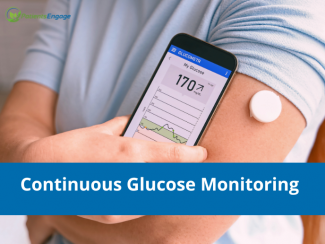
In India, nearly 80% of asthma patients are on oral medications due to fear and stigma associated with the inhalers. Dr Shilpa Nayak, an allergist and immunologist, dispels misconceptions about inhalers and shares tips to manage asthma well to lead a full and active life. WORLD ASTHMA DAY #WorldAsthmaDay
Which are the 5 most common asthma triggers in India?
Asthma is triggered most commonly by –
- Viral flu and cold
- Outdoor and indoor pollution
- Cigarette smoking
- Allergen exposure
- Strenuous exercise and physical activity
हिंदी में पढ़े: अस्थमा (दमा) के दौरों से कैसे बचें और उनका नियंत्रण कैसे करें
Why has the incidence of paediatric asthma been going up?
Incidence of paediatric asthma in developing countries is going up due to rapid industrialization and poor air quality. Though genetic factors play a major role in development of allergic asthma; childhood obesity, parental cigarette smoking and westernize life style identified as an important cause for increasing incidence of asthma in children.
What symptoms should parents be aware of to detect asthma in child?
- Recurrent cough
- Breathlessness
- Wheezing
- Activity induced cough/wheeze
- Nocturnal cough/breathlessness
- Tightness of chest
What are the challenges of asthma in adolescence?
Asthma is a chronic disease and patients need to take long time preventer medications (inhalers) on daily basis for better control of symptoms. A major challenge of asthma management in adolescent is non-compliance of medications and denial of having asthma.
What is the reason for this denial/non-compliance and what could be its repercussions?
- Non-compliance can be either intentional or unintentional. The reason for unintentional non-compliance can be inadequate training in inhalational technique or a regimen that is too complex and time consuming.
- Lack of understanding about the long term preventive treatment is another important cause of non-compliance.
- Another difficulty for teenagers is the awkwardness of taking medications via a large volume spacer when at school or out with friends.
- Denial of having asthma, or of the severity of illness, is a common reason for non-compliance in this age group.
- Additional factors such as inconvenience of treatment, forgetfulness, laziness, or carelessness are not unique to adolescent behavior.
Do you think stigma hinders inhalational therapy amongst people with asthma?
In India, nearly 80% of asthma patients are on oral medications due to fear and stigma associated with the inhalers. Oral medications are required in large dosage in comparison to inhalers, leading to side effects.
Patient’s anxiety regarding side effects dependence and overdose is a major cause of non-compliance of inhalers. Inhalers are actually nothing more than drug delivery systems.
What is Asthma Action Plan? Why is it important?
A written asthma action plan is a set of instructions that helps you recognize worsening asthma and tells you what to do in response. The aim of an asthma action plan is to help a person with asthma and/or their carer take early action to prevent or reduce the severity of an asthma attack. The asthma action plan may be based on symptoms and/or peak flow measurements. It is personalized according to the pattern of your own asthma. In children, plans based on symptoms are preferred. In most children with asthma, change in symptoms is just as effective as peak flow for indicating that asthma is getting worse.
Download the Asthma Management EBook Here

What is allergy testing? Why is necessary for people with Asthma?
Allergies to inhalant allergens (for example dust mites, pollen, animal dander, moulods or fungal allergen) are an important underlying cause of asthma in most of the patients. With the help of allergy testing your doctor can identify the specific allergen you are allergic to. Dose of preventer medications can be reduced significantly by implementing allergen avoidance measures and allergy vaccine.
Could you spell out 5 tips to prevent asthma attacks?
- Take your asthma medications regularly.
- Avoid triggers for example smoking, cold air, allergen exposure, smoke etc
- Use Peak flow meter to assess response to your maintenance therapy and predict the impending asthma attack.
- Join asthma support group to stay motivated.
- Yoga and breathing exercises daily







